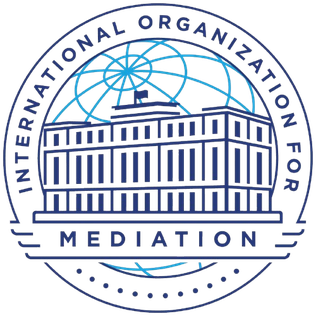ENA - ENA English
Headlines
Prez Taye Highlights Ethiopia’s Practical Climate Solutions Through Green Legacy Initiative
Jul 11, 2025 77
Addis Ababa, July 11, 2025 (ENA)—Ethiopia is demonstrating climate leadership by spearheading impactful mitigation efforts through the Green Legacy Initiative, President Taye Atske Selassie said. The president, alongside staff from the Office of the President, took part in today’s tree planting activity as part of this year’s Green Legacy Initiative. Ethiopia's GLI launched in June 2019 by Prime Minister Abiy Ahmed, aims to restore degraded lands, expand forest cover, and mitigate the effects of climate change. At the end of last month, Prime Minister Abiy Ahmed, joined by diplomatic dignitaries and senior government officials, officially launched this year’s Green Legacy Initiative, unveiling an ambitious target to plant 7.5 billion tree seedlings. Highlighting the positive impact of Ethiopia's Green Legacy Initiative, Taye emphasized that it is delivering multiple benefits, notably making a substantial contribution to climate change mitigation. President Taye further noted that, in addition to its climate benefits, the initiative contributes significantly to ecosystem restoration, landslide prevention, and the conservation of water resources. He emphasized its vital role in combating desertification and supporting efforts to achieve food self-sufficiency, urging all Ethiopians to actively participate in this year’s tree saplings planting program. Moreover, the initiative is deeply intertwined with human well-being, and the current generation is making history through its active participation, the president elaborated. The President also expressed his profound gratitude to Prime Minister Abiy Ahmed for pioneering the Green Legacy Initiative—from its conception to full-scale implementation. It is worth recalling that this year’s Green Legacy Initiative was launched on June 27, 2025, under the theme 'Renewal through Planting. In this year's Green Legacy Initiative program, 7.5 billion seedlings will be planted nationwide under the theme: “Renewal Through Planting.”
Addis Ababa's Corridor Dev't Boosts Livability, Tourism: Mayor Adanech
Jul 11, 2025 139
Addis Ababa, July 11, 2025 (ENA)—The Corridor Development initiative has built a positive image for Ethiopia by significantly enhancing Addis Ababa's livability for residents and making it more convenient and welcoming to tourists, Mayor Adanch Abiebie said today. Presenting the 2017 Ethiopian budget year performance report at the Addis Ababa City Council meeting, the mayor underscored the swift and well-coordinated implementation of the Second Phase of the Corridor Development program. According to her, lessons learned from the first phase were effectively applied to improve planning and execution in the second. Active community participation was also ensured by reaching consensus and a shared vision. The initiative has played a transformative role in upgrading informal settlements and delivering dignified housing, workspaces, green development, children's playgrounds, and vital social infrastructure such as schools and health centers. The second phase has delivered significant infrastructure, including 135 kilometers roads, 246 kilometers pedestrian walkways, 141 kilometers bicycle lanes, jogging tracks, and 53 bridges for both vehicles and pedestrians. It also incorporated crucial flood control measures and essential support infrastructure. Efforts to modernize urban transport included the construction of parking lots and terminals with a combined capacity for up to 35,000 vehicles. Electrical infrastructure has also been upgraded through the installation of both standard and smart poles, alongside the laying of underground power lines. Public amenities have seen substantial expansion, with the development of 431 hectares of green space, 110 public recreational plazas, and 112 modern roadside public toilets. Mayor Adanech emphasized that these improvements are part of a broader urban strategy to enhance Addis Ababa's quality of life and increase its global competitiveness. She proudly announced that Addis Ababa had been ranked first in urban transformation among 115 cities in a global Smart City competition. It also won the Africa Smart City Award. The mayor stressed that the development has been inclusive, benefiting all segments of the society and making sure that no one is left behind. The Corridor Development has reshaped the city's image, boosted competitiveness, fostered a culture of innovation and collaboration, and improved project implementation efficiency, she added. Furthermore, the initiative has created employment opportunities for hundreds of thousands of residents and significantly enhanced the city's beauty, cleanliness, and environmental sustainability, contributing positively to the country's image on the global stage.
Stakeholders Emphasize Public Participation as Key to Sustainable Food System Transition
Jul 11, 2025 238
Addis Ababa, July 11, 2025 (ENA)— Stakeholders underscore the critical need for broad societal involvement to achieve a sustainable and inclusive food system in Ethiopia. The Ethiopian News Agency (ENA), in partnership with the Ethiopian Agricultural Transformation Institute (ATI), hosted a national forum titled "From Vision to Action: Ethiopia's Sustainable and Inclusive Food System Transition Journey." While presenting the initial discussion points, Firew Tegegn, Deputy Director General of the Agricultural Transformation Institute (ATI), reaffirmed Ethiopia’s commitment to the Sustainable Development Goals (SDGs), highlighting the country’s leadership in transforming its national food systems. He said that Ethiopia, in partnership with Italy, will co-host the 2nd United Nations Food and Agriculture Conference in Addis Ababa from July 27-29, 2025. Firew noted the event would boost Ethiopia’s international standing and highlight its ongoing progress in food system transformation. Since the transition began, Ethiopia has launched several flagship national programs to accelerate change within its food system. Key initiatives include Yelemat Tirufat (Bounty of Basket), wheat development, Green Legacy Initiative, School feeding, Ethiopia Tamert (Let Ethiopia Produce), and the Seqota Declaration. Frealem Shibabaw, Director of the Ethiopian School Feeding Initiative, highlighted the government’s role in fostering a stronger generation through these programs. She noted that over 800,000 students in the Addis Ababa City Administration currently receive two meals daily under the School Feeding Program, which aligns with the Sekota Declaration. Improving agricultural productivity is a shared national responsibility, stated Bikila Workneh, Dean of the College of Natural Sciences and Engineering at Addis Ababa University. He called for increased private sector involvement, especially in food processing and value addition. Brooke Kebede, CEO of NBC Television, underscored the media’s crucial role in advancing food systems and food sovereignty. He cited media contributions in raising awareness on key national issues like the Green Footprint campaign, land tenure, and agricultural mechanization. Helen Tilahun, Executive Director of New Life Ten Challenge Development, stressed the importance of engaging youth, women, and persons with disabilities in the food system transformation to ensure it is inclusive and equitable. Preparations are currently underway for the successful hosting of the upcoming United Nations Food Systems Summit.
Addis Ababa Mayor Announces Completion of Nearly 16,000 Projects in Landmark Dev’t Push
Jul 11, 2025 217
Addis Ababa, July 10, 2025 (ENA)—— Mayor of Addis Ababa, Adanech Abiebie, announced that close to 16,000 community-centered projects were successfully completed and put into operation during the 2017 Ethiopian fiscal year, marking a significant milestone in the city’s grassroots development efforts. The mayor attributed this remarkable achievement to the strong partnership and collaborative efforts between the government and the people, highlighting it as a testament to the power of collective action in driving community development. She made these remarks during the 4th regular session of the 4th year of the 3rd Addis Ababa City Council, where Mayor Adanech presented the city administration’s implementation report. The report emphasized a broad range of initiatives aimed at accelerating the city’s social and economic transformation. Among the key developments are the Addis International Convention Center, new shopping centers, and critical infrastructure improvements in sectors including health, education, and the arts. Housing development was also a major area of focus, with 5,176 housing units constructed using the city’s own budget, she stated, adding that 8, 786 homes for vulnerable communities were also built entirely through voluntary contributions. The city also made major advances in its economic corridor development strategy, completing 5,563 retail shops in key locations such as Kazanchis, Bole, Lideta, Lafto, and Arat Kilo. According to the mayor, these projects were made possible through strong public-private partnerships. Furthermore, 1,064 workshop sheds were completed and are now in use, further energizing local economic activity. As part of its initiative to make Addis Ababa more child-friendly, the city completed 1,155 children’s playgrounds under the First Childhood Movement, she added. Youth development also remained a priority, with 122 youth sports fields completed. In the transport sector, 153 new parking lots and transport terminals were constructed in the first phase of the fiscal year. Of the total 15,960 projects, 16 were identified as mega projects, strategic, large-scale developments with citywide impact, notably 9,000 of the projects were carried out through community participation and voluntary service, reflecting the administration’s emphasis on civic engagement. In terms of road infrastructure, the city constructed and rehabilitated 1,392 kilometers of roads, including asphalt, cobblestone, gravel roads, and pedestrian sidewalks, she said adding these improvements have enhanced urban mobility and contributed to easing traffic congestion, further improving the quality of life for residents.
South Sudan’s FM Arrives in Addis Ababa for Working Visit
Jul 10, 2025 518
Addis Ababa, July 11, 2025 (ENA)--- The Minister of Foreign Affairs and International Cooperation of the Republic of South Sudan, Monday Semaya Kumba, has arrived in Addis Ababa this evening for a working visit. Upon arrival at Bole International Airport, the Minister was warmly received by Ambassador Zerihun Abebe, Director General for African Affairs. During the visit, the Minister is scheduled to meet with senior Ethiopian government officials to discuss ways to strengthen bilateral relations between the two countries.
Politics
South Sudan’s FM Arrives in Addis Ababa for Working Visit
Jul 10, 2025 518
Addis Ababa, July 11, 2025 (ENA)--- The Minister of Foreign Affairs and International Cooperation of the Republic of South Sudan, Monday Semaya Kumba, has arrived in Addis Ababa this evening for a working visit. Upon arrival at Bole International Airport, the Minister was warmly received by Ambassador Zerihun Abebe, Director General for African Affairs. During the visit, the Minister is scheduled to meet with senior Ethiopian government officials to discuss ways to strengthen bilateral relations between the two countries.
Ethiopian Delegation Participating at 47th AU Ordinary Session of the Executive Council
Jul 10, 2025 406
Addi Ababa, July 10, 2025 (ENA) -- An Ethiopian delegation, led by State Minister of Foreign Affairs, Ambassador Hadera Abera, is taking part in the 47th Ordinary Session of the Executive Council of the African Union (AU), which kicked off this morning in Malabo, Equatorial Guinea. The meeting is being held under the theme of the year: “Justice for Africans and People of African Descent Through Reparations”. The Executive Council will deliberate on issues, including reform of the African Union, follow-up on the implementation of Agenda 2063, as well as election and appointment of members of AU organs, among others. The 47th Session of the Executive Council is also expected to deliberate on fast tracking of the integration process in Africa as well as exchange views on the reports of the AfCFTA and the 2025 AU theme of the Year implementation status.
Ethiopia Achieves Notable Diplomatic Successes During Just Concluded Fiscal Year
Jul 10, 2025 806
Addi Ababa, July 10, 2025 (ENA) -- Ethiopia registered significant diplomatic achievements during the concluded 2017 Ethiopian fiscal year, according to the Ministry of Foreign Affairs. In a media briefing held today, Ambassador Nebiat Getachew, Spokesperson for the Ministry of Foreign Affairs, outlined the key diplomatic achievements recorded during the recently concluded 2017 Ethiopian Fiscal Year. Ambassador Nebiat stated that Ethiopia’s diplomatic efforts throughout the year were fruitful, reflecting the country’s growing influence in both regional and global affairs. He highlighted significant progress in multilateral engagement, peace diplomacy, economic partnerships, and citizen-centered diplomacy. Ethiopia undertook proactive diplomatic initiatives aimed at promoting its international image and safeguarding national interests across multiple sectors. A major focus was placed on strengthening mutually beneficial relations with neighboring countries, with particular emphasis on regional integration through energy and infrastructure connectivity. Ethiopia also played a constructive role in advancing peace and stability across the Horn of Africa. Several bilateral and multilateral agreements were signed during the year, which contributed to enhancing Ethiopia’s international visibility and protecting its national interests. In terms of people-to-people engagement, Ethiopia provided 968 free higher education opportunities to students from neighboring countries during the year, underscoring its commitment to regional development and solidarity. To enhance economic diplomacy and attract foreign capital, Ethiopia promoted its investment opportunities in 160 international forums. Ethiopia has also participated in 118 trade promotion events, which led to the creation of 151 new market linkages for Ethiopian export products. Ambassador Nebiat also highlighted the government’s strong focus on citizen-centered diplomacy. Over 131,000 Ethiopian nationals were repatriated from 21 countries after facing difficult circumstances abroad, demonstrating the government’s commitment to the welfare of its citizens. Looking ahead, preparations are underway for Ethiopia to host two major international events: the UN Food Systems Summit and the 2nd Africa Climate Summit, he added. The 2nd UN Food Systems Summit Stocktake (UNFSS+4) will take place from July 27–29, 2025, in Addis Ababa, Ethiopia, co-hosted by Ethiopia and Italy. The 2nd Africa Climate Summit (ACS2) is the other important gathering that will be held in Addis Ababa from September 8-10, 2025, with pre-summit events from September 5-7. This summit is co-hosted by Ethiopia and the African Union, with the theme "Accelerating Global Climate Solutions: Financing for Africa's Resilient and Green Development". These events are expected to further elevate Ethiopia’s role in global discussions and showcase the country's efforts in climate action, sustainable development, and international cooperation. Ambassador Nebiat emphasized that Ethiopia’s preparation for these summits is a reflection of its practical commitment to global challenges, particularly climate change, and its aspiration to contribute meaningfully to international solutions.
Ethiopia-Zambia Relations Continue to Strengthen: Ambassador Rose Sakala
Jul 9, 2025 654
Addis Ababa, July 9, 2025 (ENA)— Zambian Ambassador to Ethiopia Rose Sakala said the long-standing, multifaceted relationship between the two countries has grown stronger across various sectors. In an exclusive interview with ENA, Ambassador Sakala highlighted the enduring and multifaceted ties between Ethiopia and Zambia, noting that the relationship been gaining momentum and continues to thrive across diverse sectors. Specifically, since Zambia established its embassy in Ethiopia, the partnership between the two countries has been flourishing, evolving from strength to strength and fostering various forms of cooperation, she remarked. She noted that in 2017, the two nations successfully established a joint permanent commission, which has since yielded practical benefits in several areas of mutual cooperation. According to the Ambassador, efforts have been made to bring together business professionals and other stakeholders from both sides to further enhance their ties, as both countries possess significant potential. She indicated that the joint permanent commission fortifies connections in trade and investment, particularly in the fields of agriculture and air transport. Acknowledging Zambia's significant historical contributions to African unity and pan-Africanism, the Ambassador highlighted that Zambia has been proactive in reinforcing its commitment to African causes. Consequently, Zambia has been actively involved in organizing and participating in various platforms aimed at promoting African unity and advancing continental agendas, she stated. In a similar vein, the Ambassador pointed out that Zambia has been supporting initiatives to uphold peace and security across the continent, both through troop contributions and by seeking to resolve crises through peaceful diplomatic means, asserting that "Dialogue is the way forward." She mentioned that Zambia, along with other African nations, is striving to reform the UN Security Council to secure permanent representation for Africa within the organization, as excluding Africa is a historical injustice. On the other hand, the Ambassador stated that Zambia has made substantial contributions to regional economic integration, with pan-Africanism serving as a fundamental principle and driving force behind these efforts. She emphasized that Zambia is an integral part of the 1,300-kilometer Lobito Corridor railway project, which is expected to enhance connectivity, trade, and transportation across three southern African countries. Regarding the African Union's blueprint, Agenda 2063, the Ambassador described it as a golden agenda that presents numerous opportunities for Africa, urging for its implementation through collaborative efforts. The Ambassador remarked: “If we bind together, we shall overcome, if we don't bind together the challenges will continue amongst ourselves.”
President Taye Bids Farewell to Outgoing UN Assistant Secretary-General in Ethiopia
Jul 9, 2025 623
Addis Ababa, July 9, 2025 (ENA)— President Taye Atske Selassie has bid farewell today to the outgoing UN Assistant Secretary-General, Resident and Humanitarian Coordinator in Ethiopia, Ramiz Alakbarov. During the meeting, the two sides exchanged views on strengthening the enduring partnership between Ethiopia and the United Nations. They discussed future avenues for cooperation and ways to deepen the collaborative efforts that have contributed to Ethiopia's development and humanitarian endeavors. President Taye expressed his sincere appreciation to Alakbarov for his instrumental role in enhancing UN-Ethiopia relations during his tenure. Taye also acknowledged the lasting contributions made by the UN official in advancing mutual goals and supporting Ethiopia’s national priorities. Approached by ENA, Alakbarov reflected on his time in Ethiopia, describing it as both meaningful and inspiring. He lauded Ethiopia’s remarkable progress in development, noting impactful transformations in both urban centers and rural communities. He said, “For the last two years that I have been in Ethiopia, I must admit I have seen an amazing transformation happening in this country. If you see Addis Ababa or regional cities, you could see strong changes in the way the cities operate. The city corridor development project has transformed the capital and regional cities. I was very impressed with one the largest and probably the largest environmental initiative called green legacy. I have never seen any other country where billions of trees are planted.” The outgoing assistant secretary-general reaffirmed that the collaborative partnership between Ethiopia and the United Nations will further be strengthened in the coming years. He further stated that: “I have been very much honored to be able to sign with Ethiopia our 5 years partnership plan. It happened a couple of weeks ago. This plan has envisaged partnerships towards the agenda 2030. By the year 2030, this 5 years plan will be over. It amounts to 6 billion dollars. We have five transformative areas where we are working through.”
Comorian President Hails Ethiopia’s Pivotal Diplomatic Legacy, Progressive Dev’t Trajectory on Africa
Jul 8, 2025 716
Addis Ababa, June 8, 2025 (ENA)—President Azali Assoumani of Comoros has recognized Ethiopia’s pivotal diplomatic legacy on the African continent and commended its ongoing strides in inclusive and sector-wide development. Over the weekend, Ethiopian President Taye Atske Selassie participated in the celebrations marking the 50th anniversary of Comoros’ Independence Day. On the sidelines of the Independence Day celebrations, President Taye Atske Selassie and Comorian President Azali Assoumani held diplomatic talks aimed at strengthening bilateral relations. Specifically, President Taye briefed President Assoumani on Ethiopia’s ongoing efforts to achieve food sovereignty, offering valuable lessons Comoros could draw upon, ENA learned from the Office of the President. Expressing his gratitude to the Government of Comoros for the invitation to attend the Independence Day celebrations, President Taye emphasized the vast potential for expanding diplomatic cooperation between the two countries. For President Taye, agriculture is the key sector for further cooperation between the countries as Ethiopia is setting an example in Africa in the spheres of summer irrigation and massive wheat productivity. On his part, President Azali Assoumani of Comoros affirmed that his talks with the Ethiopian president were productive, focusing on strengthening bilateral relations. Assoumani who was the former African Union (AU) Chairperson, highlighted Ethiopia's pivotal role as a central hub in the African continent. He also praised Ethiopia’s remarkable economic transformation, noting it as a source of inspiration for African nations striving for sustainable development. He also emphasized the strategic importance of Ethiopian Airlines—an emblem of the country's progress—in enhancing regional and global connectivity, particularly for Comoros.
Slovenia’s Opening of Embassy in Addis Strategic Commitment to Deeper Ties with Ethiopia, Africa: Ambassador
Jul 8, 2025 1300
Addis Ababa, July 8, 2025 (ENA) - The opening of Slovenia's embassy in Addis Ababa is a symbol of strategic commitment to deeper political and economic ties with Ethiopia and the African continent, Slovenian Ambassador to Ethiopia, Kristina Radej told ENA. In a move signaling deeper engagement between Europe and Africa, Slovenia has officially opened its embassy in Addis Ababa, Ethiopia in November 1 last year. Slovenia's embassy in the Ethiopian capital is its third diplomatic post in Africa with a resident ambassador. This milestone is expected to usher in a new era of diplomatic, economic, and developmental cooperation between the two nations. The inauguration of the Slovenian Embassy in Addis Ababa marks a significant step forward in bilateral relations between Slovenia and Ethiopia. Slovenian Ambassador to Ethiopia, Kristina Radej told Ethiopian News Agency (ENA) that the opening of the Slovenian embassy is a symbol of strategic commitment to deeper political and economic ties with Ethiopia and the African continent. On the economic front, Slovenia is eyeing several promising sectors for investment including agriculture, renewable energy, and technology. Slovenian businesses are already exploring opportunities, having exploratory visits. In addition to trade, Slovenia aims to share expertise in technology transfer and agricultural innovation. Slovenian Embassy already supporting an Urban Bee keeping pilot programs in Addis Ababa and other parts of the country that could directly benefit Ethiopian farmers and agribusinesses. Ambassador Kristina also noted that, as Slovenia strengthens its bilateral relations with Ethiopia, it also remains mindful of its broader commitments to the European Union and the United Nations. The embassy of Slovenia to Ethiopia will definitely serve as a vital hub to fostering multilateral diplomacy, regional peace, and sustainable development partnerships with Ethiopia and Africa. A growing friendship between Ethiopia and Slovenia, now cemented with a new diplomatic post, the ambassador said, noting that Slovenia brings with it valuable experience from its own history of regional integration and post-conflict recovery in Europe. The Ambassador believes that Slovenia can contribute meaningfully to Africa’s own peace and unity aspirations particularly when guided by African priorities and institutions.
PM Abiy Engages in Strategic Diplomatic Talks on Sidelines of BRICS Summit
Jul 7, 2025 920
Addis Ababa, June 7, 2025 (ENA)—Ethiopian Prime Minister Abiy Ahmed held strategic diplomatic engagements with leaders of several countries on the sidelines of the 17th BRICS Summit, according to Foreign Affairs Minister Gedion Timothewos. Attending the 17th BRICS Summit in Rio de Janeiro, Prime Minister Abiy engaged in high-level talks with the leaders of Brazil, China, South Africa as well as foreign ministers. The Prime Minister delivered a speech during the opening session on peace and security and global governance. The diplomatic engagements offered a valuable opportunity to deepen bilateral ties and to foster greater understanding and support for Ethiopia’s stance on key strategic issues, according to Minister Gedion. Prime Minister Abiy Ahmed held initial talks with Brazilian President Luiz Inácio Lula da Silva, focusing on ways to strengthen bilateral cooperation between Ethiopia and Brazil, the minister indicated. As a result, Gedion noted the discussion offered the President a valuable opportunity to gain deeper insight into Ethiopia’s current situation, policy direction, and the wider regional context. In a similar diplomatic engagement, Prime Minister Abiy Ahmed held discussions with Chinese Prime Minister Li Qiang on enhancing Ethio-Chania bilateral relations. In particular, the two leaders explored ways to enhance China’s constructive role in Ethiopia’s economic development and acknowledged China’s significant contribution to securing debt relief for Ethiopia through the Paris Club framework. The two sides also exchanged views on expanding Ethiopia’s access to China’s market through duty-free export opportunities, a trade initiative China has recently extended to African countries like Ethiopia, Gedion indicated. Moreover, Prime Minister Abiy held consultations with South African President Cyril Ramaphosa on a range of issues, it was indicated. The Foreign Minister highlighted President Ramaphosa’s pivotal role regarding the Grand Ethiopian Renaissance Dam (GERD) during his tenure as Chairperson of the African Union, noting that their discussion covered the dam’s current status, progress toward completion, and related matters. Additionally, Gedion emphasized Ethiopia’s interest in drawing lessons, technologies, and investments from these partner countries, recognizing multiple sectors where Ethiopia can both benefit and contribute.
Politics
South Sudan’s FM Arrives in Addis Ababa for Working Visit
Jul 10, 2025 518
Addis Ababa, July 11, 2025 (ENA)--- The Minister of Foreign Affairs and International Cooperation of the Republic of South Sudan, Monday Semaya Kumba, has arrived in Addis Ababa this evening for a working visit. Upon arrival at Bole International Airport, the Minister was warmly received by Ambassador Zerihun Abebe, Director General for African Affairs. During the visit, the Minister is scheduled to meet with senior Ethiopian government officials to discuss ways to strengthen bilateral relations between the two countries.
Ethiopian Delegation Participating at 47th AU Ordinary Session of the Executive Council
Jul 10, 2025 406
Addi Ababa, July 10, 2025 (ENA) -- An Ethiopian delegation, led by State Minister of Foreign Affairs, Ambassador Hadera Abera, is taking part in the 47th Ordinary Session of the Executive Council of the African Union (AU), which kicked off this morning in Malabo, Equatorial Guinea. The meeting is being held under the theme of the year: “Justice for Africans and People of African Descent Through Reparations”. The Executive Council will deliberate on issues, including reform of the African Union, follow-up on the implementation of Agenda 2063, as well as election and appointment of members of AU organs, among others. The 47th Session of the Executive Council is also expected to deliberate on fast tracking of the integration process in Africa as well as exchange views on the reports of the AfCFTA and the 2025 AU theme of the Year implementation status.
Ethiopia Achieves Notable Diplomatic Successes During Just Concluded Fiscal Year
Jul 10, 2025 806
Addi Ababa, July 10, 2025 (ENA) -- Ethiopia registered significant diplomatic achievements during the concluded 2017 Ethiopian fiscal year, according to the Ministry of Foreign Affairs. In a media briefing held today, Ambassador Nebiat Getachew, Spokesperson for the Ministry of Foreign Affairs, outlined the key diplomatic achievements recorded during the recently concluded 2017 Ethiopian Fiscal Year. Ambassador Nebiat stated that Ethiopia’s diplomatic efforts throughout the year were fruitful, reflecting the country’s growing influence in both regional and global affairs. He highlighted significant progress in multilateral engagement, peace diplomacy, economic partnerships, and citizen-centered diplomacy. Ethiopia undertook proactive diplomatic initiatives aimed at promoting its international image and safeguarding national interests across multiple sectors. A major focus was placed on strengthening mutually beneficial relations with neighboring countries, with particular emphasis on regional integration through energy and infrastructure connectivity. Ethiopia also played a constructive role in advancing peace and stability across the Horn of Africa. Several bilateral and multilateral agreements were signed during the year, which contributed to enhancing Ethiopia’s international visibility and protecting its national interests. In terms of people-to-people engagement, Ethiopia provided 968 free higher education opportunities to students from neighboring countries during the year, underscoring its commitment to regional development and solidarity. To enhance economic diplomacy and attract foreign capital, Ethiopia promoted its investment opportunities in 160 international forums. Ethiopia has also participated in 118 trade promotion events, which led to the creation of 151 new market linkages for Ethiopian export products. Ambassador Nebiat also highlighted the government’s strong focus on citizen-centered diplomacy. Over 131,000 Ethiopian nationals were repatriated from 21 countries after facing difficult circumstances abroad, demonstrating the government’s commitment to the welfare of its citizens. Looking ahead, preparations are underway for Ethiopia to host two major international events: the UN Food Systems Summit and the 2nd Africa Climate Summit, he added. The 2nd UN Food Systems Summit Stocktake (UNFSS+4) will take place from July 27–29, 2025, in Addis Ababa, Ethiopia, co-hosted by Ethiopia and Italy. The 2nd Africa Climate Summit (ACS2) is the other important gathering that will be held in Addis Ababa from September 8-10, 2025, with pre-summit events from September 5-7. This summit is co-hosted by Ethiopia and the African Union, with the theme "Accelerating Global Climate Solutions: Financing for Africa's Resilient and Green Development". These events are expected to further elevate Ethiopia’s role in global discussions and showcase the country's efforts in climate action, sustainable development, and international cooperation. Ambassador Nebiat emphasized that Ethiopia’s preparation for these summits is a reflection of its practical commitment to global challenges, particularly climate change, and its aspiration to contribute meaningfully to international solutions.
Ethiopia-Zambia Relations Continue to Strengthen: Ambassador Rose Sakala
Jul 9, 2025 654
Addis Ababa, July 9, 2025 (ENA)— Zambian Ambassador to Ethiopia Rose Sakala said the long-standing, multifaceted relationship between the two countries has grown stronger across various sectors. In an exclusive interview with ENA, Ambassador Sakala highlighted the enduring and multifaceted ties between Ethiopia and Zambia, noting that the relationship been gaining momentum and continues to thrive across diverse sectors. Specifically, since Zambia established its embassy in Ethiopia, the partnership between the two countries has been flourishing, evolving from strength to strength and fostering various forms of cooperation, she remarked. She noted that in 2017, the two nations successfully established a joint permanent commission, which has since yielded practical benefits in several areas of mutual cooperation. According to the Ambassador, efforts have been made to bring together business professionals and other stakeholders from both sides to further enhance their ties, as both countries possess significant potential. She indicated that the joint permanent commission fortifies connections in trade and investment, particularly in the fields of agriculture and air transport. Acknowledging Zambia's significant historical contributions to African unity and pan-Africanism, the Ambassador highlighted that Zambia has been proactive in reinforcing its commitment to African causes. Consequently, Zambia has been actively involved in organizing and participating in various platforms aimed at promoting African unity and advancing continental agendas, she stated. In a similar vein, the Ambassador pointed out that Zambia has been supporting initiatives to uphold peace and security across the continent, both through troop contributions and by seeking to resolve crises through peaceful diplomatic means, asserting that "Dialogue is the way forward." She mentioned that Zambia, along with other African nations, is striving to reform the UN Security Council to secure permanent representation for Africa within the organization, as excluding Africa is a historical injustice. On the other hand, the Ambassador stated that Zambia has made substantial contributions to regional economic integration, with pan-Africanism serving as a fundamental principle and driving force behind these efforts. She emphasized that Zambia is an integral part of the 1,300-kilometer Lobito Corridor railway project, which is expected to enhance connectivity, trade, and transportation across three southern African countries. Regarding the African Union's blueprint, Agenda 2063, the Ambassador described it as a golden agenda that presents numerous opportunities for Africa, urging for its implementation through collaborative efforts. The Ambassador remarked: “If we bind together, we shall overcome, if we don't bind together the challenges will continue amongst ourselves.”
President Taye Bids Farewell to Outgoing UN Assistant Secretary-General in Ethiopia
Jul 9, 2025 623
Addis Ababa, July 9, 2025 (ENA)— President Taye Atske Selassie has bid farewell today to the outgoing UN Assistant Secretary-General, Resident and Humanitarian Coordinator in Ethiopia, Ramiz Alakbarov. During the meeting, the two sides exchanged views on strengthening the enduring partnership between Ethiopia and the United Nations. They discussed future avenues for cooperation and ways to deepen the collaborative efforts that have contributed to Ethiopia's development and humanitarian endeavors. President Taye expressed his sincere appreciation to Alakbarov for his instrumental role in enhancing UN-Ethiopia relations during his tenure. Taye also acknowledged the lasting contributions made by the UN official in advancing mutual goals and supporting Ethiopia’s national priorities. Approached by ENA, Alakbarov reflected on his time in Ethiopia, describing it as both meaningful and inspiring. He lauded Ethiopia’s remarkable progress in development, noting impactful transformations in both urban centers and rural communities. He said, “For the last two years that I have been in Ethiopia, I must admit I have seen an amazing transformation happening in this country. If you see Addis Ababa or regional cities, you could see strong changes in the way the cities operate. The city corridor development project has transformed the capital and regional cities. I was very impressed with one the largest and probably the largest environmental initiative called green legacy. I have never seen any other country where billions of trees are planted.” The outgoing assistant secretary-general reaffirmed that the collaborative partnership between Ethiopia and the United Nations will further be strengthened in the coming years. He further stated that: “I have been very much honored to be able to sign with Ethiopia our 5 years partnership plan. It happened a couple of weeks ago. This plan has envisaged partnerships towards the agenda 2030. By the year 2030, this 5 years plan will be over. It amounts to 6 billion dollars. We have five transformative areas where we are working through.”
Comorian President Hails Ethiopia’s Pivotal Diplomatic Legacy, Progressive Dev’t Trajectory on Africa
Jul 8, 2025 716
Addis Ababa, June 8, 2025 (ENA)—President Azali Assoumani of Comoros has recognized Ethiopia’s pivotal diplomatic legacy on the African continent and commended its ongoing strides in inclusive and sector-wide development. Over the weekend, Ethiopian President Taye Atske Selassie participated in the celebrations marking the 50th anniversary of Comoros’ Independence Day. On the sidelines of the Independence Day celebrations, President Taye Atske Selassie and Comorian President Azali Assoumani held diplomatic talks aimed at strengthening bilateral relations. Specifically, President Taye briefed President Assoumani on Ethiopia’s ongoing efforts to achieve food sovereignty, offering valuable lessons Comoros could draw upon, ENA learned from the Office of the President. Expressing his gratitude to the Government of Comoros for the invitation to attend the Independence Day celebrations, President Taye emphasized the vast potential for expanding diplomatic cooperation between the two countries. For President Taye, agriculture is the key sector for further cooperation between the countries as Ethiopia is setting an example in Africa in the spheres of summer irrigation and massive wheat productivity. On his part, President Azali Assoumani of Comoros affirmed that his talks with the Ethiopian president were productive, focusing on strengthening bilateral relations. Assoumani who was the former African Union (AU) Chairperson, highlighted Ethiopia's pivotal role as a central hub in the African continent. He also praised Ethiopia’s remarkable economic transformation, noting it as a source of inspiration for African nations striving for sustainable development. He also emphasized the strategic importance of Ethiopian Airlines—an emblem of the country's progress—in enhancing regional and global connectivity, particularly for Comoros.
Slovenia’s Opening of Embassy in Addis Strategic Commitment to Deeper Ties with Ethiopia, Africa: Ambassador
Jul 8, 2025 1300
Addis Ababa, July 8, 2025 (ENA) - The opening of Slovenia's embassy in Addis Ababa is a symbol of strategic commitment to deeper political and economic ties with Ethiopia and the African continent, Slovenian Ambassador to Ethiopia, Kristina Radej told ENA. In a move signaling deeper engagement between Europe and Africa, Slovenia has officially opened its embassy in Addis Ababa, Ethiopia in November 1 last year. Slovenia's embassy in the Ethiopian capital is its third diplomatic post in Africa with a resident ambassador. This milestone is expected to usher in a new era of diplomatic, economic, and developmental cooperation between the two nations. The inauguration of the Slovenian Embassy in Addis Ababa marks a significant step forward in bilateral relations between Slovenia and Ethiopia. Slovenian Ambassador to Ethiopia, Kristina Radej told Ethiopian News Agency (ENA) that the opening of the Slovenian embassy is a symbol of strategic commitment to deeper political and economic ties with Ethiopia and the African continent. On the economic front, Slovenia is eyeing several promising sectors for investment including agriculture, renewable energy, and technology. Slovenian businesses are already exploring opportunities, having exploratory visits. In addition to trade, Slovenia aims to share expertise in technology transfer and agricultural innovation. Slovenian Embassy already supporting an Urban Bee keeping pilot programs in Addis Ababa and other parts of the country that could directly benefit Ethiopian farmers and agribusinesses. Ambassador Kristina also noted that, as Slovenia strengthens its bilateral relations with Ethiopia, it also remains mindful of its broader commitments to the European Union and the United Nations. The embassy of Slovenia to Ethiopia will definitely serve as a vital hub to fostering multilateral diplomacy, regional peace, and sustainable development partnerships with Ethiopia and Africa. A growing friendship between Ethiopia and Slovenia, now cemented with a new diplomatic post, the ambassador said, noting that Slovenia brings with it valuable experience from its own history of regional integration and post-conflict recovery in Europe. The Ambassador believes that Slovenia can contribute meaningfully to Africa’s own peace and unity aspirations particularly when guided by African priorities and institutions.
PM Abiy Engages in Strategic Diplomatic Talks on Sidelines of BRICS Summit
Jul 7, 2025 920
Addis Ababa, June 7, 2025 (ENA)—Ethiopian Prime Minister Abiy Ahmed held strategic diplomatic engagements with leaders of several countries on the sidelines of the 17th BRICS Summit, according to Foreign Affairs Minister Gedion Timothewos. Attending the 17th BRICS Summit in Rio de Janeiro, Prime Minister Abiy engaged in high-level talks with the leaders of Brazil, China, South Africa as well as foreign ministers. The Prime Minister delivered a speech during the opening session on peace and security and global governance. The diplomatic engagements offered a valuable opportunity to deepen bilateral ties and to foster greater understanding and support for Ethiopia’s stance on key strategic issues, according to Minister Gedion. Prime Minister Abiy Ahmed held initial talks with Brazilian President Luiz Inácio Lula da Silva, focusing on ways to strengthen bilateral cooperation between Ethiopia and Brazil, the minister indicated. As a result, Gedion noted the discussion offered the President a valuable opportunity to gain deeper insight into Ethiopia’s current situation, policy direction, and the wider regional context. In a similar diplomatic engagement, Prime Minister Abiy Ahmed held discussions with Chinese Prime Minister Li Qiang on enhancing Ethio-Chania bilateral relations. In particular, the two leaders explored ways to enhance China’s constructive role in Ethiopia’s economic development and acknowledged China’s significant contribution to securing debt relief for Ethiopia through the Paris Club framework. The two sides also exchanged views on expanding Ethiopia’s access to China’s market through duty-free export opportunities, a trade initiative China has recently extended to African countries like Ethiopia, Gedion indicated. Moreover, Prime Minister Abiy held consultations with South African President Cyril Ramaphosa on a range of issues, it was indicated. The Foreign Minister highlighted President Ramaphosa’s pivotal role regarding the Grand Ethiopian Renaissance Dam (GERD) during his tenure as Chairperson of the African Union, noting that their discussion covered the dam’s current status, progress toward completion, and related matters. Additionally, Gedion emphasized Ethiopia’s interest in drawing lessons, technologies, and investments from these partner countries, recognizing multiple sectors where Ethiopia can both benefit and contribute.
Social
Ethiopia Field Epidemiology and Laboratory Training Program Emerging as Model: Executive Director
Jul 9, 2025 662
Addis Ababa, July 9, 2025 (ENA) -- Ethiopia is forging a new path in public health with its Field Epidemiology and Laboratory Training Program (FELTP) emerging as a model that builds a resilient and well-equipped public health workforce, Program Executive Director Assegid Samuel said. The initiative has enabled the training of more than 800 field epidemiologists—an achievement that places Ethiopia close to meeting the global health security workforce targets, the executive director added. Currently offered in eight universities, the globally accredited initiative has continued to strengthen the country’s public health workforce, it was learned. According to Assegid, the program plays a critical role in preparing field epidemiologists to tackle emerging health threats, disease outbreaks, and public health emergencies by producing adequate workforce that support emergency surveillance, management, and response systems. Unlike many countries where such programs are heavily dependent on foreign donors, Ethiopia has taken full ownership, ensuring the program’s stability even in turbulent financial times, he revealed. Ethiopia’s FELTP emphasis on teamwork ensures that public health challenges are tackled holistically, with seamless integration among different health professionals. “The majority of activities are conducted in a team-based approach. So you can’t talk about physicians, surgeons, or nurses alone — they all work together as a team,” the executive director stated. Assegid said that the government’s commitment goes beyond words. Over 42 vehicles have been deployed to support practical training, and substantial financial resources are allocated for investigations, surveillance, and data analysis at regional and national levels. Moreover, FELTP’s impact extends beyond workforce development, with over 4,000 policy-informing research projects. The executive director stressed that Ethiopia’s approach is a model for others. “One of the best experiences in field epidemiology programs is government ownership. Unless the government owns any kind of system, it’s very difficult to have an adequate number of qualified professionals and address other issues.” With strong links to international partners like CDC and WHO, Ethiopia’s FELTP is not only building national resilience but also contributing to regional and global health security, he noted.
Ethiopian Red Cross Society Urged to Build Capacity to Achieve Mission
Jul 8, 2025 781
Addis Ababa, June 8, 2025 (ENA)— President Taye Astke Selassie said the Ethiopian Red Cross Society (ERCS) should focus on building capacity that enables it to prevent and alleviate human suffering through appropriate and timely humanitarian and development initiatives. The President and Patron of the Society made the remark during the 90th Anniversary of the Ethiopian Red Cross Society held at Addis International Convention Center today. Describing the ERCS as a beacon of compassion and generosity established amid challenges, he commended the Society on the behalf of Ethiopian government and the people for its humanitarian activities in the past years. According to him, members of the Society have made heroic sacrifices by confronting the challenges Ethiopia faced against its sovereignty. At present when international humanitarian support is in decline, the ERCS needs to give attention to building a sustainable capacity to carry out humanitarian work independently, he added. As we strive to become self-sufficient in food and empower ourselves through innovation at the national level, we must consider it a matter of sovereignty to avoid dependency and support our vulnerable people with our own resources, the President underscored. On his part, ERCS President Abera Tola said the government is significantly supporting the Society to enhance its capacity. According to him, the Society has set a plan to increase its membership to 20 million over the next ten years and cover its expenses. By 2035 ERCS would sustain its operation and humanitarian work, becoming a regional leader in humanitarian assistance capable of providing support for other societies in Africa, the President said. International Committee of the Red Cross Delegation for Ethiopia Head Simone Casabianca-Aeschlimann highlighted ERCS's nine decades of compassion, courage, and resilience, supporting those affected by conflict, violence, and natural disasters across Ethiopia. “The ERCS has stood firm through times of peace and peril achieving remarkable progress, often under extreme pressure,” she said, adding that “these milestones are carved not only into the legacy of ERCS, but into the lives of millions whose suffering was alleviated by your presence.” Simone further stated that “the ICRC has walked this challenging yet rewarding journey over all these years. Our cooperation is grounded in a deep and enduring relationship, dating back to 1935.” The Head appreciated the dedication of its leadership, staff, and thousands of volunteers. “We are confident that this milestone will inspire renewed purpose and amplify your strength.” Former patrons of the ERCS, President Mulatu Teshome and President Sahle-Work Zewdie, and senior government officials as well as ambassadors attended the anniversary.
Greece Detains over 1,200 Migrants in Three Days as Arrivals from Libya Surge
Jul 8, 2025 1177
Addis Ababa, July 8, 2025 (ENA)— Authorities in Greece said more than 1,200 migrants have been detained on the island of Crete and the nearby islet of Gavdos over the past three days, following a surge in arrivals from Libya. The coast guard said multiple boats were intercepted off Crete's southern coast from Saturday through Monday, prompting regional officials to request additional government assistance. The spike in arrivals comes as Greece’s Foreign Minister Giorgos Gerapetritis visited Libya for talks with both the internationally recognized government and a rival faction, seeking solutions to the escalating migration crisis and ongoing disputes over maritime boundaries. Government spokesperson Pavlos Marinakis said patrol operations by the coast guard and navy in the area will likely be strengthened. According to him, around 8,000 migrants have landed on Crete so far this year. “This is a complex and extremely serious situation. Crete and its residents are under immense pressure,” Marinakis said. “We hope diplomatic efforts succeed. If not, we’ll have to implement stricter, large-scale measures to safeguard the country.” Many migrants undertake the dangerous 350-kilometer (220-mile) journey from Libya to Crete in unsafe, makeshift boats, often assembled to survive a single trip or converted from abandoned vessels. The small island of Gavdos, located south of Crete, has been overwhelmed by the influx. Stranded boats and dinghies litter its remote, pebble beaches, some accessible only on foot. On one such beach, a migrant named David from conflict-ridden South Sudan sat with five others, resting as they considered their next steps. He told The Associated Press that smugglers mistreated many passengers during the journey and demanded extra payments. “After you pay, everything is by force. If you speak, they beat you,” David said, describing the overcrowded and dangerous conditions on board. He expressed his hope to stay anywhere in Europe. “We didn’t come to cause problems. We came to save our lives,” he added. “If you stay [back home], you die.” Meanwhile, European Commissioner Magnus Brunner is scheduled to visit Libya this week alongside officials from Greece, Italy, and Malta to urge Libyan authorities to step up efforts to prevent migrant departures to Europe, reports UNB.
Youth Need to Pursue Shared Vision, Play Key Role in Nation Building: PP Vice President Adem Farah
Jul 6, 2025 1001
Addis Ababa, July 6, 2025 (ENA) -- Vice President of Ethiopia’s ruling Prosperity Party (PP) and Head of the Democratic System Building Center with the rank of Deputy Prime Minister, Adem Farah stressed that the youth need to pursue a shared vision and play key role in the nation building endeavors. The event, marking the closing of the youth wing of PP, which took place consecutively under the theme “The role of Youths in State Building”, was organized in cooperation with the Ministry of Peace. Having set visions, Ethiopia has been implementing them in economic, political, social, and diplomatic spheres to achieve multispectral goals, Adem added. He also cited the country’s larger population, where size of the youth population is predominant, and its natural resources. The government is diligently working to ensure that the youth plays a constructive role in building peace and the development of their country, the Vice President of PP emphasized. Adem also cited the 5 million coders initiative and many other comprehensive technical and vocational training programs, being provided to young people to help them become global citizens. He remarked that numerous initiatives are underway to empower young individuals to become capable leaders, pointing out that over half of the leadership roles, starting from the woreda level, are held by those under 35 years old. The government has been implementing the Green Legacy Initiative, the development of corridors to spearhead the overall development aspirations of the nation and boost productivity. Minister of Peace, Mohamed Idris, for his part, said that the Ethiopian youth of his generation played a significant role in protecting the country from destabilization. The youth have an indispensable role in upholding the sovereignty of the country and are expected to participate responsibly in national agendas and decision-making to move the country forward, the minister stressed. Young people should prioritize the peaceful resolution of disputes through dialogue and consultation, and should use their golden years to develop themselves. Aklilu Tadesse, President of the Youth Wing of the Prosperity Party, emphasized the critical role that young people can play in driving the nation towards multisectoral change. Urging the youth not only to focus on their personal growth and development but also to actively participate in initiatives that contribute to the broader advancement of their country, he stated the importance of unleashing their energy, creativity, and innovation to address the pressing challenges facing communities. The youth vowed to support national progress through community services and peace promotion, aligning with the Ministry of Peace.
Economy
Addis Ababa's Corridor Dev't Boosts Livability, Tourism: Mayor Adanech
Jul 11, 2025 139
Addis Ababa, July 11, 2025 (ENA)—The Corridor Development initiative has built a positive image for Ethiopia by significantly enhancing Addis Ababa's livability for residents and making it more convenient and welcoming to tourists, Mayor Adanch Abiebie said today. Presenting the 2017 Ethiopian budget year performance report at the Addis Ababa City Council meeting, the mayor underscored the swift and well-coordinated implementation of the Second Phase of the Corridor Development program. According to her, lessons learned from the first phase were effectively applied to improve planning and execution in the second. Active community participation was also ensured by reaching consensus and a shared vision. The initiative has played a transformative role in upgrading informal settlements and delivering dignified housing, workspaces, green development, children's playgrounds, and vital social infrastructure such as schools and health centers. The second phase has delivered significant infrastructure, including 135 kilometers roads, 246 kilometers pedestrian walkways, 141 kilometers bicycle lanes, jogging tracks, and 53 bridges for both vehicles and pedestrians. It also incorporated crucial flood control measures and essential support infrastructure. Efforts to modernize urban transport included the construction of parking lots and terminals with a combined capacity for up to 35,000 vehicles. Electrical infrastructure has also been upgraded through the installation of both standard and smart poles, alongside the laying of underground power lines. Public amenities have seen substantial expansion, with the development of 431 hectares of green space, 110 public recreational plazas, and 112 modern roadside public toilets. Mayor Adanech emphasized that these improvements are part of a broader urban strategy to enhance Addis Ababa's quality of life and increase its global competitiveness. She proudly announced that Addis Ababa had been ranked first in urban transformation among 115 cities in a global Smart City competition. It also won the Africa Smart City Award. The mayor stressed that the development has been inclusive, benefiting all segments of the society and making sure that no one is left behind. The Corridor Development has reshaped the city's image, boosted competitiveness, fostered a culture of innovation and collaboration, and improved project implementation efficiency, she added. Furthermore, the initiative has created employment opportunities for hundreds of thousands of residents and significantly enhanced the city's beauty, cleanliness, and environmental sustainability, contributing positively to the country's image on the global stage.
Stakeholders Emphasize Public Participation as Key to Sustainable Food System Transition
Jul 11, 2025 238
Addis Ababa, July 11, 2025 (ENA)— Stakeholders underscore the critical need for broad societal involvement to achieve a sustainable and inclusive food system in Ethiopia. The Ethiopian News Agency (ENA), in partnership with the Ethiopian Agricultural Transformation Institute (ATI), hosted a national forum titled "From Vision to Action: Ethiopia's Sustainable and Inclusive Food System Transition Journey." While presenting the initial discussion points, Firew Tegegn, Deputy Director General of the Agricultural Transformation Institute (ATI), reaffirmed Ethiopia’s commitment to the Sustainable Development Goals (SDGs), highlighting the country’s leadership in transforming its national food systems. He said that Ethiopia, in partnership with Italy, will co-host the 2nd United Nations Food and Agriculture Conference in Addis Ababa from July 27-29, 2025. Firew noted the event would boost Ethiopia’s international standing and highlight its ongoing progress in food system transformation. Since the transition began, Ethiopia has launched several flagship national programs to accelerate change within its food system. Key initiatives include Yelemat Tirufat (Bounty of Basket), wheat development, Green Legacy Initiative, School feeding, Ethiopia Tamert (Let Ethiopia Produce), and the Seqota Declaration. Frealem Shibabaw, Director of the Ethiopian School Feeding Initiative, highlighted the government’s role in fostering a stronger generation through these programs. She noted that over 800,000 students in the Addis Ababa City Administration currently receive two meals daily under the School Feeding Program, which aligns with the Sekota Declaration. Improving agricultural productivity is a shared national responsibility, stated Bikila Workneh, Dean of the College of Natural Sciences and Engineering at Addis Ababa University. He called for increased private sector involvement, especially in food processing and value addition. Brooke Kebede, CEO of NBC Television, underscored the media’s crucial role in advancing food systems and food sovereignty. He cited media contributions in raising awareness on key national issues like the Green Footprint campaign, land tenure, and agricultural mechanization. Helen Tilahun, Executive Director of New Life Ten Challenge Development, stressed the importance of engaging youth, women, and persons with disabilities in the food system transformation to ensure it is inclusive and equitable. Preparations are currently underway for the successful hosting of the upcoming United Nations Food Systems Summit.
Addis Ababa Mayor Announces Completion of Nearly 16,000 Projects in Landmark Dev’t Push
Jul 11, 2025 217
Addis Ababa, July 10, 2025 (ENA)—— Mayor of Addis Ababa, Adanech Abiebie, announced that close to 16,000 community-centered projects were successfully completed and put into operation during the 2017 Ethiopian fiscal year, marking a significant milestone in the city’s grassroots development efforts. The mayor attributed this remarkable achievement to the strong partnership and collaborative efforts between the government and the people, highlighting it as a testament to the power of collective action in driving community development. She made these remarks during the 4th regular session of the 4th year of the 3rd Addis Ababa City Council, where Mayor Adanech presented the city administration’s implementation report. The report emphasized a broad range of initiatives aimed at accelerating the city’s social and economic transformation. Among the key developments are the Addis International Convention Center, new shopping centers, and critical infrastructure improvements in sectors including health, education, and the arts. Housing development was also a major area of focus, with 5,176 housing units constructed using the city’s own budget, she stated, adding that 8, 786 homes for vulnerable communities were also built entirely through voluntary contributions. The city also made major advances in its economic corridor development strategy, completing 5,563 retail shops in key locations such as Kazanchis, Bole, Lideta, Lafto, and Arat Kilo. According to the mayor, these projects were made possible through strong public-private partnerships. Furthermore, 1,064 workshop sheds were completed and are now in use, further energizing local economic activity. As part of its initiative to make Addis Ababa more child-friendly, the city completed 1,155 children’s playgrounds under the First Childhood Movement, she added. Youth development also remained a priority, with 122 youth sports fields completed. In the transport sector, 153 new parking lots and transport terminals were constructed in the first phase of the fiscal year. Of the total 15,960 projects, 16 were identified as mega projects, strategic, large-scale developments with citywide impact, notably 9,000 of the projects were carried out through community participation and voluntary service, reflecting the administration’s emphasis on civic engagement. In terms of road infrastructure, the city constructed and rehabilitated 1,392 kilometers of roads, including asphalt, cobblestone, gravel roads, and pedestrian sidewalks, she said adding these improvements have enhanced urban mobility and contributed to easing traffic congestion, further improving the quality of life for residents.
Ethiopian Launches First Direct Flight to Hanoi
Jul 10, 2025 555
Addis Ababa, July 10, 2025 (ENA) – Ethiopian Airlines, the largest network operating carrier in Africa, and one of the world’s fastest-growing airline brands, officially commenced today a new four times weekly passenger service to Hanoi, Vietnam. This new route will further enhance Ethiopian Airlines' global connectivity and provide convenient travel options for passengers traveling between Africa and Southeast Asia. Speaking during the launching ceremony, Ethiopian Group CEO Mesfin Tasew said the new flight would increase the destination of airline in Asian countries to 28. The new route, which marks a significant milestone in strengthening air connectivity between Africa and Southeast Asia, is expected to promote trade, tourism and people-to-people relations between Ethiopia and Vietnam, the CEO added. Ethiopian Airlines is also in discussion with Vietnam Airlines to explore cooperation and network expansion opportunities in the near future, it was learned. Ethiopian Airlines was founded in 1946 and has grown to become Africa’s largest and most profitable airline. It operates international passenger and cargo services to global destinations and domestic services across the country. As a member of the Star Alliance, the airline continues to expand its global reach with a fleet of more than 140 aircrafts, including modern Airbus A350s and Boeing B787s.
Technology
IAEA’s Division for Asia and Pacific Says Significant Gap Persists in Radiation Medicine in Low-income Countries
Jul 7, 2025 932
Addis Ababa, July 7, 2025 (ENA) --- Ethiopia is making remarkable progress in expanding cancer treatment and radiotherapy services, Lead Executive Officer in Charge of Disease Prevention and Control at the Ministry of Health, Dr. Hiwot Solomon told ENA. The Lead Executive Officer said that the International Atomic Energy Agency’s (IAEA) Rays of Hope initiative launched in 2022 in Ethiopia to support low- and middle-income countries to improve life-saving cancer care. Low- and middle-income countries face limitations in resources, trained workforce, and radiation safety infrastructure, which are critical for the safe and efficient delivery of radiation medicine, Director of the Division for Asia and the Pacific Department of Technical Cooperation at the International Atomic Energy Agency (IAEA) Gashaw Gebayehu underscored. Dr. Hiwot described the initiative as “very young” but with “great ambition,” emphasizing its focus on increasing radiotherapy capacity in countries with limited resources." “Radiotherapy treatment and diagnosis is not an easy task to do alone, and the IAEA is a great partner in having this kind of technology in place in different countries,” Dr. Hiwot said, highlighting how Ethiopia benefits from the initiative’s guidance and regulatory support amid rising cancer cases. According to her, Ethiopia currently operates five radiotherapy centers, with plans to expand services nationwide to address geographic and population challenges. “The government allocates budgets with the support of the IAEA, and together with the Rays of Hope initiative, there is a plan to expand the service,” she added. The Lead Executive Officer said, in addition to radiotherapy, the country has intensified community-level cancer screening, notably expanding cervical cancer screening to over 1,500 health facilities and vaccinating more than a million girls against HPV. Stating that Ethiopia prioritizes capacity building in cancer care in partnerships with local institutions and the IAEA, she said that trainings were provided to over 20 professionals in various radiotherapy fields, including nurses, oncologists, and medical physicists. Echoing similar thoughts, Gashaw Gebayehu, reflected on the initiative’s rapid expansion. “Ever since the first wave of countries in Africa, and the second wave with about 20 countries, have benefited from the IAEA support in the framework of the Rays of Hope initiative, establishing, developing, and expanding radiation medicine services,” he said. He cited that new cancer centers will be launched in Malawi and other African nations. Gashaw also acknowledged the persistent challenges in radiation medicine. “Despite the rising cases of cancer, there is still a significant gap in radiation medicine in low- and middle-income countries. These countries face limitations in resources, trained workforce, and radiation safety infrastructure, which are critical for the safe and efficient delivery of radiation medicine,” he explained. He added that to address these challenges, the IAEA’s Technical Cooperation Program provides comprehensive support, including training, equipment procurement, technical advice, and fostering partnerships. “We support the development of biotherapy, nuclear medicine, diagnostic radiology, and medical physics services, which form the basis for efficient delivery of additional services,” he said.
Some 40 Professionals of NISS Receive Int'l Certifications on Aviation Security Quality Control, Risk Management
Jul 2, 2025 1767
Addis Ababa, July 2, 2025 (ENA) -- Forty professionals from the National Intelligence and Security Service (NISS), trained in Aviation Security Quality Control and Risk Management, have obtained international certifications. The organization tasked with supervising the comprehensive aviation security operations in Ethiopia has partnered with the International Civil Aviation Organization (ICAO) to grant international certification to 40 individuals who have undergone training in aviation security quality control and aviation risk management, NISS stated in a press release it sent to ENA. It is worth noting that after twelve years, ICAO conducted an audit of Ethiopia's aviation security practices and confirmed that there are no security issues within the country. Subsequently, leveraging the positive relationship and collaboration established with the Civil Aviation Security Main Department of NISS, training was held for the first time in Ethiopia from June 16 to July 1, 2025, facilitated by experts from ICAO. The trainers from the ICAO indicated that the international certification enables the airline to perform aviation security quality control operations in all nations where it operates, affirming that the professionals have successfully completed the training, NISS stated in a press release. It further emphasized that the knowledge acquired in the training will not only allow the institution to execute its national mission with high level of efficiency, but it can also be regarded as a notable indication of the special focus Ethiopia has been placing on the aviation security sector. The responsibility for implementing robust quality control and ensuring preparedness for aviation security lies with each member state of the International Civil Aviation Organization. This approach will guarantee the safety of the aviation sector in line with international standards, NISS underlined. The knowledge, skills, and mindset acquired through the training will significantly contribute to the vision and overall institutional strategy aimed at establishing a global presence in the aviation security field, thereby enhancing the competitiveness of Ethiopian Airlines and securing national advantages, the press release stated.
Digital Ethiopia 2025 Registers Significant Progress in Nat'l Digital Transformation: Minister
Jul 1, 2025 1590
Addis Ababa July 1, 2025 (ENA) -- The Digital Ethiopia 2025 Initiative has delivered significant progress since its implementation over the past five years, Innovation and Technology Minister Belete Molla said. In an exclusive interview with ENA, the minister emphasized that sustainable national development depends on a strong foundation of science, technology, and innovation. In this regard, Ethiopia has made a notable stride by establishing a comprehensive legal framework and a national digital strategy aimed at transitioning into a digital economy. According to the minister, infrastructure that supports digital transformation is now actively in use. The Digital Ethiopia 2025 Strategy has been implemented in alignment with the country’s Homegrown Economic Reform Agenda, the 10-Year Development Plan, and African Union’s Digital Transformation Strategy. The current five-year strategy will conclude next month, and preparations are underway for a new strategy extending through 2030, the minister added. Among the key achievements of the initiative over the past five years include the expansion of the digital payment system, digital services, and making digital identity accessible. Belete pointed out the launch of Mesob, a One-Stop Digital Service Center, as a major milestone in this respect. The platform consolidates multiple government services into a single digital portal, improving efficiency and accessibility for users, he stated. The minister added that the One-Stop Service model is now being expanded to regional cities to ensure that citizens across the country benefit from digital services.
Academy Becoming Preferred Training Hub for Africa: Ethiopian Civil Aviation Training Academy
Jul 1, 2025 1551
Addis Ababa, July 1, 2025 (ENA) - The Ethiopian Civil Aviation Training Academy is increasingly becoming the top choice for numerous African countries seeking aviation training, Acting Academy Director of Leulseged Gulelat told ENA. According to the acting director, the academy is producing skilled professionals crucial for the success of aviation industry. He further stated that the training academy has been deploying qualified aviation experts in various regions of the country in fields such as air traffic control, communication and navigation surveillance (CNS) for many years. This year alone, the academy has provided comprehensive theoretical and practical training for more than 86 professionals, and deployed them to work. Leulseged revealed that the academy's training extends beyond Ethiopia, offering effective training programs to neighboring countries and other African nations, thereby increasing its demand and reputation. He specifically mentioned the recent training it offered to trainees from Djibouti, Somalia, and Comoros. A growing number of African countries are requesting training at the Ethiopian Civil Aviation Training Academy, making it their preferred institution, the acting director added. Underscoring the academy's strong reputation and acceptance across Africa, Leulseged said the academy is focused on various initiatives to further connect the region. Betelehem Molla, an instructor at the academy and chief air traffic controller on her part stated that the training provided aligns with the current standards of the global aviation industry. She explained that the practical and theoretical training equips trainees with sufficient hands-on knowledge, making them highly effective in the aviation sector.
Sport
Great Run that Highlights Sports Tourism Potential in Ethiopia to Take Place in Bokoji City
May 16, 2025 6014
Addis Ababa, May 16, 2025 (ENA) --- The Ethio Telecom Great Run will take place in Bokoji, a city globally recognized as the birthplace of numerous elite Ethiopian athletes, on May 25, 2025. The event marks the 3rd city race in the "'Discover Ethiopia Classics" series in a collection of 4 races planned to take place in regional cities. Briefing the media today, Tourism State Minister Endegena Abebe said the government's strategic vision is to position Bokoji, a city globally recognized as the birthplace of numerous elite Ethiopian athletes, as a central hub for sports tourism development. "Our core aim is to leverage the power of athletics to drive economic development in areas like Bokoji," he stated, highlighting plans to significantly boost investment in sports tourism, particularly within the hospitality sector. He articulated the ambition for Bokoji to evolve into a renowned destination akin to Eldoret in Kenya, which is celebrated for both its athletic prowess and thriving tourism industry. Culture and Sport Tourism State Minister, Mekuye Mohammed, noted Ethiopia's considerable untapped potential in benefiting from the sport sector, stressing the need for dedicated efforts in this regard. On his part, Bokoji Deputy Mayor Bezu Abebe affirmed the city's readiness to welcome participants and guests. He said a total of three thousand participants are expected to attend the event and athletes from ten countries to take part in the run.
Ethiopian Athletes Win Half Marathon at 5th EAPCCO Sports Competition
May 2, 2025 6387
Addis Ababa, May 2, 2025 (ENA) -- Ethiopian athletes celebrated victories in both the men's and women's half marathon events at the 5th Eastern Africa Police Chiefs Cooperation (EAPCCO) Sports Competition. The event, held to commemorate the 116th anniversary of the Ethiopian Police, brought together police athletes from Ethiopia, Kenya, Tanzania, and Djibouti. The half marathon, starting and finishing at Summit Square, showcased a dominant performance by the Ethiopian team, which secured all three podium positions in both races. In the men’s competition, Addisu Gobena claimed first place, with Simatchew Wolde taking second and Balew Yehune finishing third. In the women’s event, Meselech Alemayehu won gold, followed by Gadisi Mulu in second place and Shuko Gamamo in third. Assistant Commissioner Markos Genet, the Coordinator of the EAPCCO Sports Competition, highlighted that the event featured six sports: athletics, boxing, target shooting, darts, taekwondo, and handball. He stressed that the competition's goal is to promote unity and strengthen collaboration among police forces in the East African region. Addisu Gobena and Meselech Alemayehu, the half marathon winners, credited their success to rigorous training. Addisu emphasized the high level of competition, stating that many competitive athletes participated in the race, and expressed his happiness at being a winner among them. Kenyan police officer Ruguru also spoke positively about the event, stating, “Everything is very good. The competition between Ethiopia and Kenya was anticipated. It provided me with valuable experience for future preparation, and I am very pleased about it.”
Ethiopia’s Police Guardian of Law, Symbol of Excellence in Sports: DPM
Apr 28, 2025 8402
Addis Ababa, April 28, 2025 (ENA) -- Ethiopia’s Police Force is not only a guardian of law and order; it is also a symbol of excellence in sports, Deputy Prime Minister Temesgen Tiruneh said. The 5th edition of the East Africa Police Chiefs Cooperation Organization (EAPCCO) Games is underway in Addis Ababa, Ethiopia. Speaking at the opening ceremony, the deputy prime minister said more than a century ago, Ethiopia became a pioneer for the continent by establishing one of Africa’s first modern police institutions. “Today, we proudly opened the 5th Edition of the EAPCCO Games, in Addis Ababa marking the 116th anniversary of the founding of the Ethiopian Police,” he said. Over the past seven years, through bold reforms, the Ethiopian Federal Police has been reborn stronger, more independent, and more efficient, the deputy prime minster added. It stands today as a proud institution, rooted in history and built for the future. According to the deputy prime minister, “Ethiopia’s police force is not only a guardian of law and order — it is also a symbol of excellence in sports.’’ Through the Omedla Sport Club, it has produced athletes who have raised our flag high on the world stage, reminded us that discipline, teamwork, and perseverance know no boundaries, Temesgen noted. The deputy prime minister added “This competition is about more than just sports. It’s about building trust. It’s about forging friendships. It’s about working together, side by side, toward a common purpose.” Ethiopian Federal Police (EFP) Commissioner General Demelash Gebremichael extended a warm welcome to delegations from Djibouti, Kenya, Rwanda, Tanzania, South Sudan, and Uganda. “As we commemorate the 116 National Police Day on May 4, we take pride in hosting the 5th EAPCCO Games in Ethiopia, reaffirming our commitment to regional cooperation,” the commissioner general stated. This game is not solely concentrated on winning or losing, he said, adding it is fundamentally aimed at promoting peace and security among member states of the EAPCCO. The commissioner general also said “We seek foster collaboration through the medium of sports. Moreover, this sport event offers a platform of participants to showcase their talents, exchange experiences and build strong relationships.” As the police institutions play a pivotal role in preparing athletes for prestigious occasions such as the Olympics and other international contests. EAPCCO Games would be instrumental in identifying promising athletes to represent their respective countries. The competition, which runs until May 4, features over 400 athletes from member states, competing across six sports disciplines.
Ethiopian Tigist Assefa breaks women-only world marathon record with 2:15:50 in London
Apr 27, 2025 8571
Addis Ababa, April 27, 2025 (ENA)—Ethiopia’s Tigist Assefa smashed the women-only world record by 26 seconds at the TCS London Marathon, running 2:15:50* to win the World Athletics Platinum Label road race on Sunday (27). The Olympic silver medallist kicked away from Kenya’s Joyciline Jepkosgei to clinch her first London Marathon win after finishing second to Peres Jepchirchir last year. Jepchirchir’s winning mark of 2:16:16 a year ago had also been a women-only world record and that is the mark Assefa improved, finishing strongly to win by almost three minutes ahead of Jepkosgei (2:18:43). Olympic champion Sifan Hassan of the Netherlands was third (2:18:59). Given the strength of the field, the women-only world record was always the target. With that in mind, the lead group of Jepkosgei, Assefa, Hassan and Megertu Alemu followed the pacemakers through 5km in a blistering 15:34 – not only inside the targeted 2:15 pace, but on sub-2:12 rhythm. The quartet maintained that pace through 10km, hitting that mark in 31:16. Assefa and Jepchirchir broke away by the halfway point, which they passed in 1:06:40, 10 seconds ahead of Hassan. The leading pair continued to move away from the rest of the field and after 35km was reached in 1:52:12, Assefa made a break. A 5:03 24th mile made the difference and by 40km Assefa was 56 seconds ahead. She finished hard to stride over the finish line in 2:15:50 – the third-fastest marathon of her career behind the 2:11:53 she ran to win in Berlin in 2023, a mark that at the time was a world record for a women’s marathon in a mixed race, and her 2:15:37 also from Berlin in 2022. A short while later, the men’s race was won by Kenya’s Sabastian Sawe in 2:02:27 – the second-fastest ever London Marathon time. Uganda’s world half marathon record-holder Jacob Kiplimo was second on his marathon debut, clocking 2:03:37.
Environment
Prez Taye Highlights Ethiopia’s Practical Climate Solutions Through Green Legacy Initiative
Jul 11, 2025 77
Addis Ababa, July 11, 2025 (ENA)—Ethiopia is demonstrating climate leadership by spearheading impactful mitigation efforts through the Green Legacy Initiative, President Taye Atske Selassie said. The president, alongside staff from the Office of the President, took part in today’s tree planting activity as part of this year’s Green Legacy Initiative. Ethiopia's GLI launched in June 2019 by Prime Minister Abiy Ahmed, aims to restore degraded lands, expand forest cover, and mitigate the effects of climate change. At the end of last month, Prime Minister Abiy Ahmed, joined by diplomatic dignitaries and senior government officials, officially launched this year’s Green Legacy Initiative, unveiling an ambitious target to plant 7.5 billion tree seedlings. Highlighting the positive impact of Ethiopia's Green Legacy Initiative, Taye emphasized that it is delivering multiple benefits, notably making a substantial contribution to climate change mitigation. President Taye further noted that, in addition to its climate benefits, the initiative contributes significantly to ecosystem restoration, landslide prevention, and the conservation of water resources. He emphasized its vital role in combating desertification and supporting efforts to achieve food self-sufficiency, urging all Ethiopians to actively participate in this year’s tree saplings planting program. Moreover, the initiative is deeply intertwined with human well-being, and the current generation is making history through its active participation, the president elaborated. The President also expressed his profound gratitude to Prime Minister Abiy Ahmed for pioneering the Green Legacy Initiative—from its conception to full-scale implementation. It is worth recalling that this year’s Green Legacy Initiative was launched on June 27, 2025, under the theme 'Renewal through Planting. In this year's Green Legacy Initiative program, 7.5 billion seedlings will be planted nationwide under the theme: “Renewal Through Planting.”
Representatives of Dev’t Partners, Officials and Staff of Refugees and Returnees Service Plant Seedlings
Jul 10, 2025 808
Addis Ababa, July 10, 2025 (ENA)— Representatives of the UN Refugee Agency (UNHCR), World Food Programme (WFP), Refugee Coordinator of Population, Refugees and Migration at the US Embassy as well as officials and staff members of the Refugees and Returnees Service have planted seedlings in Addis Ababa today. Speaking on the occasion, UNHCR Assistant Representative for Protection in Ethiopia, David Karp, said it was his second opportunity to join the Green Legacy Initiative of planting seedlings in the country. It is fantastic and enjoyable experience, he stated, emphasizing that the planting showcases unity and is part of response to the pledge made at Global Refugee Forum 2023 to plant trees. Moreover, planting seedlings in the country is of paramount significance in addressing environmental damages due to hosting refugees in the country, the assistant representative noted. In this respect, funding has been provided to support some of planting of seedlings in the camps all around the country, he revealed, expressing UNHCR’s commitment to continue working with the Government of Ethiopia to reduce environmental impacts caused by refugees. On his part, World Food Programme Deputy Country Director Kevin Hodgson stated that his presence to plant seedlings was to demonstrate WFP’s support for the Green Legacy Initiative and to continue partnership with Refugees and Returnees Service. According to him, the Green Legacy is really useful, enjoyable and hands-on initiative and such kind of natural solution is valuable in addressing climate change issues. Hodgson reaffirmed WFP’s commitment to continue supporting this kind of planting seedling events. Deputy Regional Refugee Coordinator of Population, Refugees and Migration at the US Embassy in Addis Ababa, Andrew Ellis, said that Ethiopia is moving more toward renewable energy sources and planting trees would be helpful not only for the country but also for Africa at large. He noted that having more trees and more vegetation helps to mitigate the effects of fossil fuels and others, appreciating Ethiopia’s effort towards greening the environment under the Green Legacy Initiative. Refugees and Returnees Service (RRS) Deputy Director-General, Mulualem Desta, said RRS has been engaging in planting seedlings as part of Green Legacy Initiative across the 26 refugee camps in the country. The Green Legacy Initiative is of paramount importance to mitigate environmental impact caused by hosting refugees in the country, he added. Besides, the RRS has been working to realize the government’s pledge made at the Second Global Refugee Forum 2023 to plant one hundred million seedlings around refugees hosting areas until 2027. To realize its objectives, the service has been closely working with development partners, including UN agencies, diplomatic communities and civil society, he stated, noting that the support of the development partners to the initiative has been encouraging. In this regard, Mulualem announced that RRS plans to plant five million seedlings during this rainy season.
Africa's Climate Ambition Reciprocates Tangible Global Support: Planning & Dev't Minister
Jul 9, 2025 910
Addis Ababa, July 9, 2025 (ENA) -- Africa's disproportionate vulnerability to climate change on top of its minimal contribution to global emissions oblige developed nations to triple their commitments for climate finance, Minister of Planning and Development Fitsum Assefa underlined. Fitsum made the statement during a critical UN Roundtable meeting on Resource Mobilization for the upcoming Second Africa Climate Summit (ACS2), held in Addis Ababa today. In her keynote address, Minister Fitsum underscored that Africa, responsible for less than 4 percent of global greenhouse gas emissions, faces severe impacts ranging from prolonged droughts and catastrophic floods to desert locust invasions. "We call on developed countries to tipple their commitments to providing the means of implementation--finance, technology transfer, and capacity building," the minister added. She cited alarming statistics from the Intergovernmental Panel on Climate Change (IPCC) showing a 34 percent decline in Sub-Saharan Africa's agricultural productivity since the 1960s, directly impacting the 60 percent of Africans who rely on rain-fed farming for their livelihoods. Despite these daunting challenges, Fitsum emphasized Africa's proactive stance in developing and implementing homegrown climate solutions. She noted Ethiopia's commitment as a prime example, citing its pioneering role in adopting the Copenhagen Accord in 2009 and launching its Climate Resilient Green Economy Strategy in 2011, well ahead of the Paris Agreement. Ethiopia's ambitious "Green Legacy Initiative," which has seen over 40 billion trees planted over six years, its significant strides in renewable energy, its transformative e-mobility policy, and its Corridor Development program were highlighted as tangible national efforts, she elaborated. The Minister stated that such African-led initiatives, from nature-based solutions to technological advancements, must receive greater international recognition and scale-up financial and technical support. "Africa's climate ambition must be matched by tangible global support," Fitsum stressed, urging all stakeholders – governments, the private sector, and financial institutions – to forge robust partnerships and invest in the continent's green transition. Hanan Morsy, Deputy Executive Secretary and Chief Economist of the United Nations Economic Commission for Africa (UNECA), echoed similar sentiments, emphasizing the critical juncture in global climate governance. Morsy acknowledged the continent's complex challenges, including the increasing impacts of climate change and biodiversity degradation, coupled with rising debt distress, high cost of capital, and widening financing gaps for sustainable development and climate action. She emphasized that the vision and theme of ACS2 affirm Africa's pivotal role as a provider of climate solutions. "This is not just an assertion," she declared, pointing to Ethiopia's Green Legacy Initiative, the AFR100 (African Forest Restoration Initiative), large-scale renewable energy projects, innovative financing instruments like green and blue bonds, and numerous locally led adaptation efforts as inspiring case studies across the continent. The Deputy Executive Secretary underscored that ACS2 must serve as a platform to showcase Africa as a climate solution provider and innovator. This, she argued, would not only ensure equity in climate negotiations, governance, and finance but also attract much-needed investments into Africa's natural resources sector, which forms a key anchor for these climate solutions. Morsy affirmed that ECA stands fully behind this vision and committed to supporting a successful ACS2, including through its participation in the Content and Program Committee and by exploring ways to mobilize resources for both the summit and its post-summit strategic recommendations. "This is Africa's moment—not just to speak, or to be heard, but to also lead," she concluded, urging collective action to seize this opportunity. The Second Africa Climate Summit (ACS2), co-hosted by Ethiopia and the African Union Commission, will convene from September 8-10, 2025, in Addis Ababa, aims to be a pivotal platform for accelerating global climate solutions and mobilizing finance for Africa's resilient and green development. The summit seeks to unify Africa's voice on the global stage, drive concrete reforms in climate finance mechanisms, and showcase the continent's innovative, homegrown solutions, ultimately influencing global climate architecture and fostering meaningful action on the ground.
Ethiopia Pushes for Greater Global Commitment As Africa Prepares for Crucial Climate Talks
Jul 9, 2025 1195
Addis Ababa, July 9, 2025 (ENA)— Ethiopia’s Minister of Planning and Development, Fitsum Assefa, today urged the international community to align its actions with Africa’s bold climate ambitions by providing concrete financial resources, technology transfer, and capacity-building support. Furthermore, Minister Fitsum underscored the continent’s acute vulnerability to climate change, despite its minimal contribution to global greenhouse gas emissions. Speaking at a high-level consultation in Addis Ababa ahead of the Second Africa Climate Summit, Minister Fitsum Assefa emphasized that climate change poses an existential threat to millions across the continent, citing intensifying droughts, floods, landslides, and a sharp decline in agricultural productivity. “Africa’s contribution to global emissions is negligible, yet paradoxically our continent bears a disproportionate share of the impacts,” the Minister noted. Emphasizing that the impacts of climate change are far from abstract, Fitsum highlighted how climate-induced shocks are devastating crops, livestock, and livelihoods—particularly in southern and eastern Ethiopia—underscoring the urgent need for concrete and practical action. Calling for fair climate finance, the Minister stressed that while climate funds exist globally, many remain out of reach for African nations due to limited technical capacity. The Minister urged developed countries to triple their commitments under the UNFCCC and Paris Agreement and ensure Africa has access to the means of implementation — finance, technology transfer, and capacity-building — to adapt and grow sustainably. Underscoring Ethiopia’s role as a frontrunner in climate action, she outlined key national initiatives such as the planting of more than 40 billion trees in six years under the Green Legacy Initiative. She added that Ethiopia is advancing a forward-looking transport strategy that promotes electric mobility, reinforced by a bold decision to ban the import of fossil fuel vehicles. She also mentioned Ethiopia’s ambitious corridor development program to build climate-resilient as well as inclusive cities across Africa. “Many African nations have developed effective, locally grounded climate solutions,” the Minister said, “but these must be recognized, scaled up, and properly supported.” Ethiopia will host the Second Africa Climate Summit and the Africa Climate Week in Addis Ababa this September, providing a critical platform for elevating African-led climate solutions and securing stronger global partnerships. And Ethiopia is calling on governments, the private sector, and financial institutions to forge transformative partnerships and scale up investments in Africa’s green transition. The country further urged all stakeholders to seize the upcoming Summit as a pivotal moment to reshape the global climate architecture in a more equitable and action-oriented direction. “Together, let us deliver a legacy of ambition, unity, and resilience for Africa — and for the world,” the Minister concluded. The forthcoming Second Africa Climate Summit is determined to move beyond dialogue and deliver concrete, results-oriented climate action, it was learned.
Feature Article
Land of a Thousand Lakes
Jun 25, 2025 3813
By Rahel Abebe Mekonnen At the invitation of the Finnish Ministry of Foreign Affairs and coordinated by the Embassy of Finland in Addis Ababa, I recently had the extraordinary opportunity to visit Finland. This remarkable journey brought together journalists from across Ethiopia, Kenya, Tanzania, Nigeria, South Africa, Senegal, Mozambique, and Zambia. Of all countries that I visited, Finland is a country of many remarkable features that left an indelible impression on me. Known as ‘the Land of thousand Lakes’, it captivates visitors with its natural beauty—75 percent of its land is still covered by pristine forests. Home to approximately five and a half million people, Finland stands as one of Europe's wealthiest nations. Located in Northern Europe, this Nordic gem has been named the happiest country in the world by the United Nations for eight consecutive years, a distinction that became increasingly clear to me during my stay. The Magic of Endless Light During Finland's daylight saving time (roughly from late March to late October), Finland and Ethiopia share the same time zone (UTC+3), which made my adjustment easier upon arrival. However, while I usually research thoroughly before traveling to foreign countries, nothing quite prepared me for the unusual glow of the sun when we stepped out for dinner on our first evening - it felt more like breakfast time. For us Africans, accustomed to eating dinner after dark, the idea of a late dinner while the sun still graces the sky is not only strange but almost unheard of. I had previously experienced long summer days in Spain, where the sun didn't set until nearly midnight, but what I witnessed in Finland was entirely different. Here, the sun seems reluctant to give way to the moon. Summer evenings are characterized not by artificial lights, but by natural sunlight - literally like midday. The night remains bright, the sky never truly darkens, and a new day begins before the previous one has fully faded. How extraordinary this was for us Africans, especially those of us who come from near the equator. The colorful northern lights that grace Finland's skies during certain times of the year represent one of the country's most stunning natural highlights, adding to the magical quality of this Nordic wonderland. Nature in Its Purest Form As a nature lover, I was deeply moved by what I witnessed in Finland. Without exaggeration, I saw nature preserved in its purest form. The country's remarkably clean air serves as clear evidence of this exceptional environmental stewardship. My admiration began moments after arrival. While being driven approximately 15 kilometers from the airport to our hotel, I was surprised by the city's greenery and the landscape's lushness. During my stay, I confirmed with my own eyes that much of Finland's land is indeed covered by forests and water bodies, creating a harmonious and unspoiled environment. Walking through the beautiful forests in and around Helsinki, Finland's capital, even the ground spoke of the land's richness. The earth was not only a testament to the area's fertility but felt soft and springy beneath our feet - each gentle crack underfoot serving as a quiet reminder of nature's abundance. Helsinki: A Capital of Grace and Space In Helsinki, the Senate and Kansalaistori Squares hold the same prominence as Addis Ababa's Arat Killo and Sidist Killo squares. These squares are surrounded by key landmarks, including the Presidential Palace, the University of Helsinki, the Parliament, the National Library, and the iconic Helsinki Cathedral. Like many European cities, Helsinki is renowned for its beautiful and architecturally impressive low-rise buildings. The city feels open and spacious, thanks in part to its relatively small population. Roads are paved with a combination of asphalt and traditional cobblestone, accommodating modern vehicles, public buses, and electric trains. For someone unfamiliar with European cities, it's easy to mistake cobblestone roads for sidewalks - I remember being surprised in Italy when I found myself unknowingly walking in the middle of a driveway. Natural Treasures and National Symbols Finland's natural beauty is immediately apparent, reflected in its national symbols. The silver-barked Finnish Silver Birch tree and the brown bear! Beyond its wildlife, Finland's forests are home to various edible plants, including wild strawberries and mushrooms that grow between the tall trees. While Finland boasts many different types of strawberries that aren't available year-round, it's common during the growing season to see people venturing into the woods with empty baskets and returning with freshly picked wild berries. Though Finland is known as the Land of Thousands of Lakes, it actually has over 180,000 of these pristine water bodies, which rank among the country's most treasured natural resources. One aspect I appreciated most was the clean, unprocessed natural spring water offered everywhere to everyone. In Finland, bottled or factory-produced water is rarely used. Instead, pure, natural spring water flows straight from the tap - fresh, cold, and incredibly delicious. What a truly refreshing experience! Cultural Connections and Ancient Wisdom The Finnish people demonstrate deep respect for culture and heritage, particularly in their connection to nature. I was fascinated to discover that myths and legends often associated with trees and animals are told in Finland, much like in many parts of Africa. These stories are closely tied to nature and are believed to explain the origins of certain traditions and natural phenomena. The Sauna Experience One day during our visit, we traveled to Nuuksio National Park, a place of extraordinary natural beauty. After a peaceful walk through towering trees, we were invited to enjoy a traditional Finnish sauna followed by a swim - an essential part of Finnish culture. Interestingly, "sauna" is said to be the only Finnish word found in the English dictionary. The sauna, now found worldwide especially in luxury hotels, is said to have originated in Finland and remains such an integral part of daily life that Finns often joke there are more saunas in the country than registered cars. We African journalists gladly accepted the invitation and participated in this refreshing and uniquely Finnish experience. When the heat inside the sauna becomes intense, especially when wrapped in leaves, those who can swim plunge into the cold natural lake just outside. Those who cannot swim cool off by simply dipping themselves in the water before returning to the sauna. It's a unique and invigorating contrast- truly a different kind of experience. Diplomatic Connections and Unexpected Discoveries The main coordinator of our visit was Anna Lamila, a diplomat with 35 years of experience who has represented Finland in several countries and currently serves as Ambassador-at-Large for Strategic Communications at the Finnish Ministry of Foreign Affairs. She is a wonderful communicator who looks like a 35-year-old woman despite her 35 years of work experience. One day, she affectionately called me by my grandfather's name, Mekonnen. "Did you know your name is Finnish?" she asked with a smile. "Are you related to us?" I replied, "I am definitely Ethiopian." Interestingly, I learned that the idea of exchanging short text messages - now a universal habit was first introduced by a Finnish engineer named Matti Makkonen. So I discovered that the popular name Mekonnen is also common in Finland, despite our geographical distance. Technology and Innovation When it comes to Finnish technology, most people immediately think of Nokia, the pioneering company that was among the first to introduce the mobile phone concept to the world. Nokia remains a major player in the global telecom industry, now heavily involved in advanced network development. However, Finland is the source of several major tech companies beyond Nokia. I was especially impressed by the country's technological advancement when I visited YLE, the National Media Institute, and witnessed an unmanned robotic studio system capable of recording and broadcasting news without human assistance. This was a clear demonstration of how Finland embraces innovation to modernize its media and communication sectors. Diplomatic Relations and Educational Excellence Ethiopia and Finland share a long-standing bilateral relationship spanning 66 years. This partnership extends beyond aid and development cooperation into various sectors, including education, technology, and trade. During my visit, I had the opportunity to meet Finland's Minister of Foreign Affairs, Elina Valtonen, who expressed further, strengthen and expand this relationship. Also it is important particularly through enhanced technology and knowledge transfer via partnerships with companies like Nokia. Finland is globally recognized for its high-quality education system. The country boasts more than 800 libraries, with around 40 located in the capital, Helsinki. One standout is the Oodi Central Library, located opposite the Finnish Parliament. Oodi transcends being merely a place to read - it's a cultural hub that promotes equality and creativity, offering a wide range of services and spaces for everyone, from children to adults, including areas for reading, workshops, digital media, and community events. A Society Built on Trust Another unique aspect of Finnish society that I particularly admire is its strong culture of tax compliance. Finland's tax administration proudly states that citizens pay their taxes willingly and on time. Tax evasion and complaints are rare, with both individuals and corporations fulfilling their tax obligations faithfully, reflecting the high level of public trust in government institutions. The heads of institutions I visited emphasized that Finland's systems and services were built by listening to and addressing citizens' needs. Public trust in government is exceptionally high, and Finnish academics affirm through their research that citizen happiness is closely linked to peace, freedom, and good governance. This happiness is often attributed to Finland's strong social safety net and high level of social organization. Key contributing factors include free and high-quality education, environmental protection, a fair justice system, gender equality, comprehensive welfare, and excellent maternal and childcare services. Gender Equality in Action Women play significant roles in all sectors of Finnish society, thanks to the country's strong commitment to gender equality. During my visit to the Finnish Parliament, I learned that political representation is highly inclusive. Out of 200 parliament members, 91 are women - a testament to Finland's progress in gender parity. All these elements combined have helped Finland rank number one on the United Nations' World Happiness Report for eight consecutive years. Many citizens believe the country is well on its way to being named the happiest country in the world for a ninth consecutive time. A Bittersweet Farewell Before I realized it, I had spent a week visiting Finland, and the time came to return to Addis Ababa. While seated in the airplane watching it take off, I already missed Finland. I will certainly look forward to visiting again next time, hopefully exploring places I didn't cover during this remarkable journey.
Ethiopia in IOMed, It's More than Just A Symbol
Jun 22, 2025 2540
At this stage of human development, it is disheartening to see the world mired in uncertainty and disputes once again. Disagreements inevitably arise from different ideas and thoughts. However, violent clashes resulting from these differences are something we should avoid at all costs. Through institutional intervention, we should transcend the violent experiences in different parts of the world. This phenomenon is gaining traction and disrupting the lives of millions of people worldwide. Additionally, international commercial disputes related to tariffs and foreign investors threaten human advancement because they stifle collaboration. These events call on the international community to proactively address the root causes of conflicts before they spiral out of control. In response to this urgent need, the International Organization for Mediation (IOMed) was established in Hong Kong on May 30, 2025. The organization aims to solve state-to-state, investor-state, and international commercial disputes based on mutual consent. Ethiopia is one of the founding members of this large international organization, which aims to complement existing international dispute settlement mechanisms. This aligns with the nation’s history of significant contributions to international collaboration and multilateralism. Ethiopia ardently supports international peace and security, as evidenced by its contributions to global peace initiatives. Therefore, Ethiopia's decision to join the International Organization for Mediation is an extension of its commitment to peace. Sharing this sentiment, Gedion Timothewos, the Ethiopian foreign minister, wrote the following on social media: "“Committed to the peaceful resolution of disputes & cognizant of the need for a fair & efficient public & investment dispute resolution mechanism attuned to the needs of developing countries, Ethiopia welcomes the establishment of the International Mediation Organization” As the foreign minister indicated, this move underscores Ethiopia’s dedication to fostering dialogue, mutual respect, and cooperative solutions to international disputes. This approach aligns with Ethiopia’s broader foreign policy of promoting peace and stability in the Horn of Africa and beyond. Ethiopia's commitment to resolving conflicts through mediation reflects its adherence to the principles of the United Nations Charter, particularly Article 33, which emphasizes mediation as a primary means of peacefully resolving international disputes. Ethiopia has consistently advocated for the peaceful resolution of major conflicts worldwide through internationally recognized dispute resolution mechanisms. Ethiopia has a longstanding history of successfully mediating conflicts in the Horn of Africa and beyond. Ethiopia’s commitment to peace is evident in its pragmatic actions to prevent conflict and war, rather than mere rhetoric. Ethiopia is well known for being a peaceful country that chooses to live in peace with all its neighbors, even when provoked. Ethiopia has consistently chosen mediation and peaceful means over confrontation to resolve disagreements with neighboring nations of any kind. This has been especially evident in recent years despite major provocations; Ethiopia has remained committed to its principled stance on peace. In sum, Ethiopia’s commitment to peace is a building block for social and economic development. Conversely, Ethiopia’s participation in the IOMed demonstrates its acknowledgment of the necessity of a fair and effective dispute resolution system designed for developing countries. Like many other developing nations, Ethiopia is skeptical of some international institutions' ability to address the needs of these countries. Consequently, Ethiopia has advocated for reforms that would align these institutions more closely with the needs of countries in the Global South. However, these challenges remain unresolved. Therefore, institutions like the IOMed, which will fill these gaps and complement existing institutions, align with Ethiopia's strategy of creating better international institutions through a different approach. Beyond the immediate impact of further solidifying the nation’s significant contributions, Ethiopia’s incorporation into these global institutions is a bold diplomatic gesture. This move will undoubtedly put Ethiopia in the global spotlight once again, showcasing its positive contributions to mediation efforts and thereby helping to maintain peace. Additionally, as the host of the African Union and a key player in regional organizations such as IGAD, Ethiopia’s participation in the IOMed will further solidify its status as a diplomatic hub. Furthermore, Ethiopia's engagement with the IOMed will strengthen Africa's role in global diplomacy. As a staunch supporter of African causes and Pan-Africanism, Ethiopia's involvement in the IOMed will enhance Africa’s capacity to influence global mediation norms and promote a more harmonious international order. On the other hand, by promoting peaceful and efficient ways to resolve business disputes among different stakeholders, these organizations will strengthen the flow of investments between countries. As Ethiopia is part of the international value chain, a conducive business environment for stakeholders will benefit the nation. The same is true for other forms of disputes. Approaching and solving outstanding issues will benefit Ethiopia in various ways. Overall, Ethiopia’s decision to join other nations in establishing the International Organization for Mediation is not merely symbolic; it has many benefits for Ethiopia, Africa, and the world.
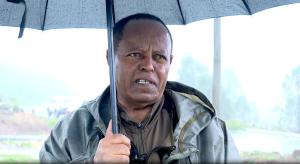
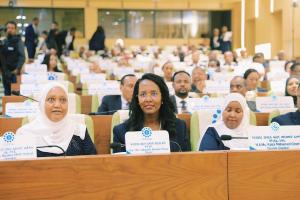
.jpg)
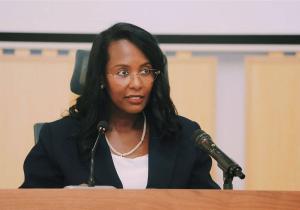
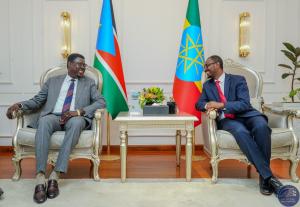


.jpg)



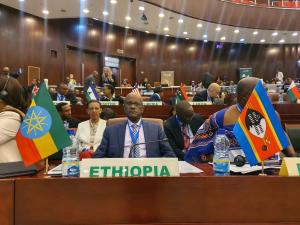
.png)
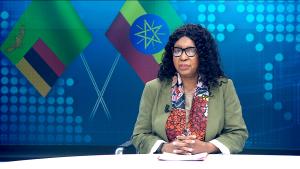
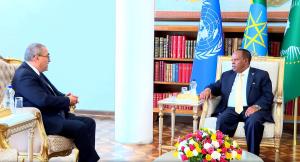
.jpg)

.jpg)
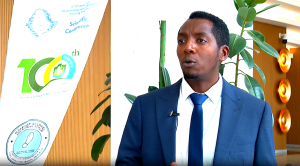
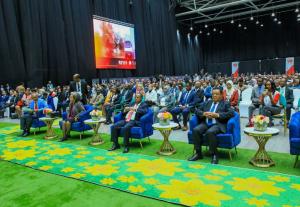
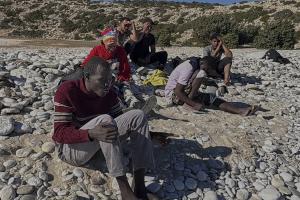
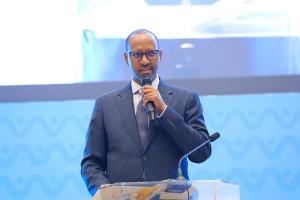

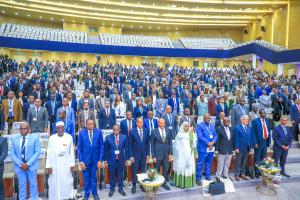
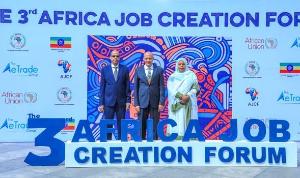
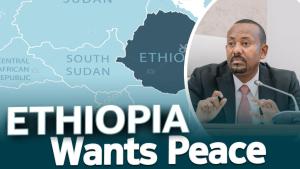

.png)

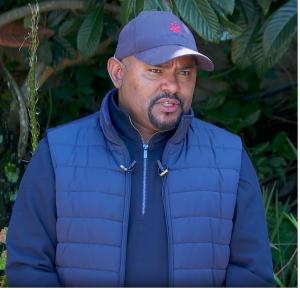
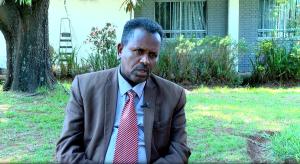
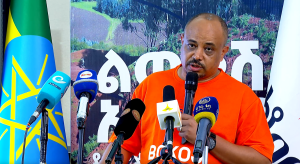
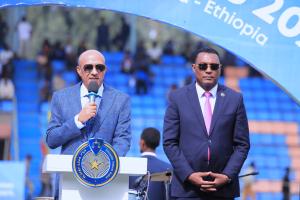

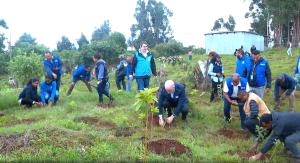
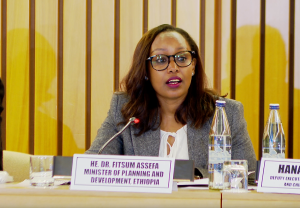
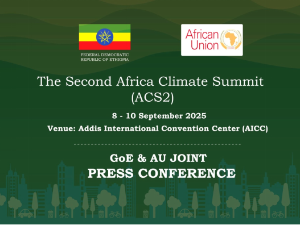

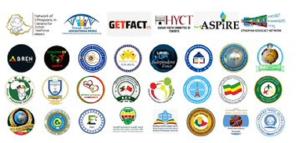

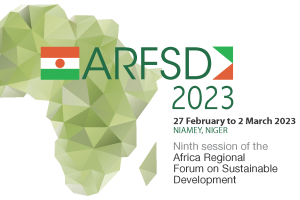
.jpg)
